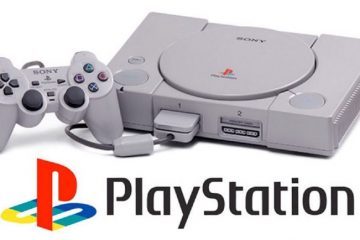What are the advantages of UWB?
What are the advantages of UWB?
Table 1-1. Advantages and benefits of UWB communications
| Advantage | Benefit |
|---|---|
| Low transmit power | Provides high degree of security with low probability of detection and intercept. |
| Resistance to jamming | Reliable in hostile environments. |
| High performance in multipath channels | Delivers higher signal strengths in adverse conditions. |
What is UWB and what are its benefits?
Like Bluetooth and Wi-Fi, ultra-wideband (UWB) is a short-range, wireless communication protocol that operates through radio waves. But unlike its counterparts, it operates at very high frequencies — a broad spectrum of GHz frequencies — and can be used to capture highly accurate spatial and directional data.
Is UWB safe?
First of all the power of UWB pulses are 1/10000-1/100000 then those of signals emitted by mobile phones so it’s safe to be used by all people. UWB has the ability to measure relative location of devices to levels of accuracy unmatched by any other wireless technology.
Which of the following is a drawback of UWB technology?
Explanation: UWB devices are power limited because they must coexist on a noninterfering basis with other licensed and unlicensed users across several frequency bands. For UWB systems using PPM as their modulation technique, limited jitter requirements could be an issue.
Where is UWB used?
UWB is useful for real-time location systems, and its precision capabilities and low power make it well-suited for radio-frequency-sensitive environments, such as hospitals. UWB is also useful for peer-to-peer fine ranging, which allows many applications based on relative distance between two entities.
Is UWB expensive?
The infrastructure and location tags for UWB systems are very expensive—as much as 10 times more costly than tags and readers for a Bluetooth (BLE) system such as AirFinder, which can achieve accuracy within a one-to-two meter range. Reader locations for UWB must be precisely anchored in order for the system to work.
Why UWB is secure?
UWB’s unique combination of signal characteristics – easy to identify, resistant to noise and reflection, separate from other signals – makes it an excellent choice for measuring distance, and its support for high-level security makes it ideally suited for secure access applications and location-based services.
What is UWB antenna?
Ultra-wideband (UWB) antennas are gaining prominence and becoming very attractive in modern and future wireless communication systems, mainly due to two factors. One UWB antenna can be used to replace multi narrow-band antennas, which may effectively reduce the antenna number.
Which is better for avoiding jamming?
Explanation: Frequency hopping spread spectrum is better for avoiding jamming.
Can UWB replace WiFi?
The FDA has approved UWB for use in the operating room and have recognized that UWB technology satisfies operating room requirements for medical-grade wireless video systems. UWB’s lower RF output power allows same channel reuse in adjacent rooms and results in low interference with other signals.
Who invented UWB?
Some of the pioneers of modern UWB communications in the United States from the late 1960s are Henning Harmuth of Catholic University of America and Gerald Ross and K. W. Robins of Sperry Rand Corporation [2].
Which filter is used to get the final FHSS signal?
Which filter is used to get the final FHSS signal? Explanation: Band pass filter is used to block difference frequency and allow the sum frequency to yield final FHSS signal.
What are the advantages of a UWB radar?
MAIN POSSIBILITIES OF UWB RADARS 1. Improved detected target range m easurement accuracy. This results in the im provement of the radar resolution by oth er coordinates. 2. Identification of target class and type becau se the elements.
Which is a characteristic of ultra wideband technology?
The use of excess bandwidth is the defining characteristic of ultra-wideband technology. The technology enables the transmission of a large amount of energy signal without interfering with standard narrowband channels used in other wireless communication systems and carrier signals used by telco operators in the same frequency band.
What’s the difference between ultra wideband and narrowband radars?
This review paper discusses the differences of ultra wideband (UWB) radars from conventional narrowband radars.
Which is better ultra wideband or WiFi?
• Compared to Wi-Fi and Bluetooth, ultra-wideband technology is inherently more precise in locating devices or objects, thus expanding the applications of smart devices and supporting the implementation of interconnected smart systems and IoT


